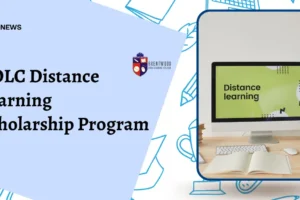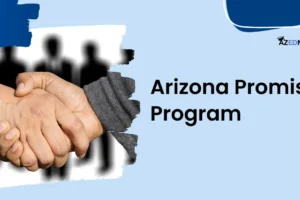Are you seeking information about the Florida Tax Credit Scholarships program? It’s aimed at providing educational opportunities for K–12 students from low-income families in Florida by offering scholarships for attending participating private schools.
Table of Contents
Scholarship funding organizations are the authorities that fund most of the scholarships and grants offered to students. Have you ever wondered where these funds come from? Well, there are donors who have donated their money in order to help the needy. However, not all the donors had donated for similar reasons.
Some have donated to get the tax credit. The state of Florida provides tax credits to individuals who have donated a certain amount to scholarship-funding organizations.
Other than Florida, there are a lot more states that offer the same relaxation to taxpayers. This will allow them to save their money, and the needy students will get the financial assistance they require to cover their educational expenses. If you want to know more about the Florida tax credit scholarships, then you are at the right place. Here, we will let you know more about the scholarships and related aspects.
What is Florida Tax Credit Scholarships?
In Florida, a tax credit is offered on corporate income and insurance premium taxes for donations to scholarship-funding organizations (SFOs) and nonprofits dedicated to providing scholarships. The eligibility for such scholarships extends to all K–12 students who are pursuing their schooling in Florida.
Also, only needy students with a particular emphasis on prioritizing low-income students and those in foster care are eligible to get the scholarship. Families can leverage these scholarships to cover a major spectrum of educational expenses.
The main motive of the Florida Tax Credit Scholarships is to encompass not only tuition at their preferred school but also instructional materials, homeschooling-related expenditures, nationally norm-referenced tests, AP exams, industry certifications, unbundled public school courses, choice navigator fees, tutoring, virtual education programs, educational therapies, and participation in extracurricular activities.
If you’re exploring Florida Tax Credit Scholarships, our comprehensive article covers everything—from qualifications to funding, rules, and historical context. For those seeking further educational opportunities, understanding which online colleges in Florida accept financial aid is crucial. Consider exploring our guide to ensure you make informed choices about your education.
Student Funding
Scholarships are offered by the state’s unweighted full-time equivalency (FTE) funding and are only offered for Exceptional Services Education expenses. These scholarships do not exceed private school tuition and fees. In the 2021–22 academic year, the maximum scholarship amount was around $7,408, with most students typically receiving awards of around $6,644.
Additionally, transportation grants for students attending out-of-district public schools can reach a maximum of around $750. However, the rewards received by the students can be used to fund most of the educational expenses of higher studies.
Student Eligibility
The scholarships come with some eligibility criteria and requirements that need to be satisfied by the students. The program comes into existence in 2023. The Florida Tax Credit Scholarship program becomes universally accessible to all resident students eligible for enrollment in kindergarten through grade 12 in a Florida public school.
Priority for awards is given first to students from households with incomes at or below 185 percent of the federal poverty level. Students who are in the foster care system and students in out-of-home care are preferred more for financial rewards. Secondary priority is extended to students with household incomes above 185 percent FPL and up to 400 percent FPL.
Homeschoolers now have access to education savings accounts through FTC under the Personalized Education Plan (PEP). Families looking to participate in PEP must register with a Florida Department of Education (FLDOE)-approved scholarship-funding organization (SFO). Additionally, participants should not be enrolled full-time in various specified educational institutions, and their child must be at least 5 years old by September 1 of the desired school year.
Regulations and Guidelines:
When aiming for the Florida Tax Credit Scholarships to cover educational expenses, applicants must meet specific guidelines. Some key criteria include:
Income Limit:
No specified income limit is determined in the scholarship, but priority is accorded to individuals with 185% FPL or those in foster care.
Previous Year Public School Requirement:
There is no necessity for the previous year’s academic scores and other requirements.
Geographic Limit:
The applicants must be from the state of Florida and be pursuing their education at any renowned Florida-based public school or educational institution. There are no restrictions on the enrollment capital as well.
Scholarship amount:
The amount of scholarships is determined by various factors, like the availability of funds. Also, it may vary every year. The maximum scholarship amount offered is around $7,408.
Testing Mandates:
It is mandatory to fill out the application for nationally norm-referenced tests or state tests. As the scores are considered to release the rewards, 100℅ credit value is awarded to the students. The overall budget capital of the scholarship is around $873.6 million.
School Requirements:
The school or educational institution where the students are pursuing their education also needs to meet some eligibility requirements. Failing to meet them leads to the rejection of applications and no rewards being offered. Some of these eligibility needs and requirements are mentioned below; let’s have a look:
- The approval of whether the funds are given to the student or not is determined or granted by the state.
- The submission of annual sworn compliance reports to the state concerning all local and state health and safety codes is a necessity.
- The scholarship is considering nondiscrimination as their prime priority, so adherence to federal nondiscrimination requirements as per 42 U.S.C. § 2000(d) is necessary for schools.
- Teachers and school personnel working with scholarship students must undergo federal background checks to ensure smooth governance of fund releases.
- All the teachers must possess a bachelor’s degree, have three years of teaching experience, and have some special expertise in the particular subject.
- Only the schools that have been operational for less than three years must secure a surety bond or letter of credit covering the value of the scholarship payments for one quarter.
- The school must meet the state and local health, safety, and welfare laws, codes, and regulations as specified in the laws of Florida.
- The schools that have received more than $250,000 under the Florida tax credit scholarship funds have to provide independent financial reporting to the state as per the specified deadline.
- The students who have applied for the scholarship to get financial assistance must undertake a nationally recognized norm-referenced test or the state public school assessment.
- The schools with a minimum of 30 students in grades 3–10 for two or more consecutive years will undergo an analysis of standardized test score gains by state researchers.
- The schools that are started in the 2019–20 academic year need to meet the needs and requirements and are subject to approval after satisfactory inspection by the Florida Department of Education.
To initiate your credit application in online mode, you need to access the Department’s Online Application for Tax Credit Allocation for Contributions to Nonprofit Scholarship Funding Organizations (SFOs).
After completing the application process, a confirmation number will be provided for your records. Once you have received the code, that means the department acknowledges your submission. Most importantly, this confirmation number does not signify approval for credit allocation or authorize credit utilization as well.
The Department will furnish written correspondence detailing either the approved tax credit allocation or the reasons for non-approval of the application.
As the funds are donated by the taxpayers, they need to go through several checks and approvals. While filling out the application form, taxpayers need to ensure that they have the following details on hand:
- The official federal identification number of the individuals
- The name of the eligible nonprofit scholarship-funding organization to which you plan to contribute the funds to cover the educational expenses of needy students.
- The specific amount you intend to contribute for the relevant tax.
- When submitting your Florida corporate income/franchise tax return on a consolidated basis, please supply the primary company’s name and its corresponding federal identification number.
Parental Responsibilities in FTC Participation
As a parent of a student enrolled in a private school involved in the FTC program, there are some roles and responsibilities that need to be satisfied. The parents bear the responsibility of enrolling their student full-time in a private school approved for participation in the FES EO program if they are not engaging in the personalized education program.
The parents need to conduct a meeting with the school’s principal or representative before enrollment to discuss academic programs, policies, specialized services, a code of conduct, and attendance policies. There is a need to check whether the student completes the norm-referenced assessment administered by the private school or not.
Parents have the responsibility to grant approval for each payment intended for the private school before funds are deposited. Also, all the financial obligations need to be fulfilled. These include all eligible expenses that exceed the scholarship amount offered to the student. The parents need to apply for or renew participation in the program and submit the necessary documentation to support the application or renewal. To get the funds, the parents also need to meet the deadlines and other requirements established by the SFO.
FAQs
1. What are the eligibility requirements for the FTC?
There are some eligibility requirements for FTS. Parents in Florida can apply for a state scholarship if their child is a resident eligible for enrollment in kindergarten through grade 12 in a public school.
Priority is given to students with a household income not exceeding 185% of the federal poverty level or those in foster care or out-of-home care. Additionally, priority is extended to students with a household income exceeding 185% but not exceeding 400% of the federal poverty level.
2. Who administers FTC funds to private schools?
When it comes to the administration of the funds, scholarship-funding organizations (SFOs) distribute funds to private schools quarterly. The distribution depends on the parent’s choice of school. Approval from parents is required before scholarship funds are deposited with the schools.
Also, in case the student fails to maintain eligibility for financial assistance or drops out of school, the funding will be stopped instantly, and there is a latent need to return all the funds along with the interest rates.
3. Can FTC students use scholarship funds for a private school that doesn’t meet program requirements?
No, the scholarship fund cannot be used in non-eligible schools. There are some strict eligibility requirements for the schools. The scholarship funds can only be used for tuition at private schools approved by the Department for participation in the program.
If you want to know whether the school you are going to enroll in meets the eligibility requirements or not, make sure to check the approved school list on the official scholarship website.
4. Are all private schools required to accept FTC students?
Private schools have the option of requesting or declining FTC participation. They will gain approval from the department after meeting scholarship needs and requirements. Participation in K–12 scholarship programs is not mandatory for private schools.
However, all the public schools are enrolled for the scholarship. Students who want to get financial assistance can apply for the Florida tax credit scholarship.
5. Where can the FTC scholarship funds be used?
The funds received under the Florida tax credit scholarships can be used to cover major educational expenses in the eligible schools in Florida. The students can use them to pay their tuition fees, books, campus charges, additional costs, and many more. To travel, additional funds are offered to the students.
Conclusion
The Florida Tax Credit Scholarships were introduced to benefit both taxpayers and students in need within the state. The article provides comprehensive information about these scholarships, outlining the eligibility criteria for both students and taxpayers.
Once you meet the criteria, you can apply for the scholarship and get the rewards. There are some roles and responsibilities that need to be satisfied by the students as well. Other states in the USA are also following the same strategy to aid taxpayers with tax relaxation as well as provide financial assistance to needy or low-income students.












Add Comment